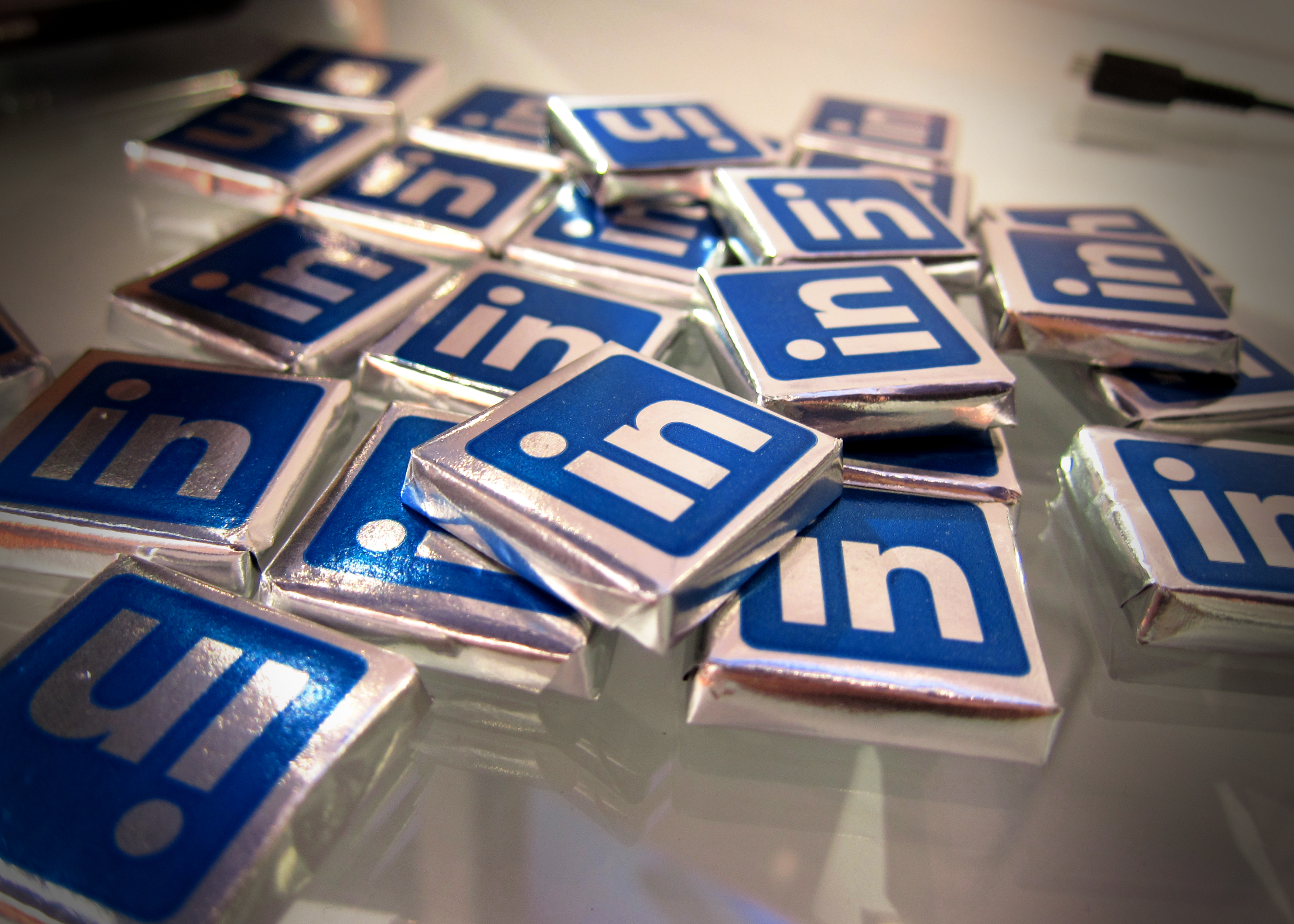Automating misinformation on LinkedIn
LinkedIn wants to be the business equivalent of Facebook. Too often, however, it's the social media version of McDonalds, with no room for individual preferences of its customers.
LinkedIn's frequent automated emails are triggered by minor updates to a user's profile. Many LinkedIn members tweak their profiles to reflect new skills or achievements. The site uses these minor updates to generate automated "say congrats" emails that may boost its traffic.
("Congrats" is the lazy person's way of saying "congratulations," "way to go," or some more-authentic kindness.)
 |
| By Nan Palmero from San Antonio, TX, USA (Linkedin Chocolates Uploaded by JohnnyMrNinja) [CC-BY-2.0 (http://creativecommons.org/licenses/by/2.0)], via Wikimedia Commons |
("Congrats" is the lazy person's way of saying "congratulations," "way to go," or some more-authentic kindness.)
It's true that I've recently branded what I've been doing for more than a year as "DSK Writing and Communications." I didn't get a new job. However, you may get an email from LinkedIn indicating that I have a new job. Which is inaccurate. Worse, it may send the wrong signal to business people looking to hire me.
I can find no way to turn off these automated email updates. All LinkedIn wants to do is up-sell me to a pricey premium account, which still offers little control over what it communicates about me. In some ways, these automated blasts of misinformation are a misuse of my personal information, leaving me little recourse to correct.
Unless you really need to know every person who's looked at your profile, you shouldn't buy LinkedIn's premium service. Wise PR people know that LinkedIn should be about growing your professional relationships. Nothing more.
Attention, LinkedIn? Time to update your algorithms to reflect how people really use your site. I'm sometimes skeptical of how Facebook manages personal information, but they do a better job of not disseminating misinformation to my contacts than you do.
My best advice: be careful when updating your LinkedIn profile. You may trigger an unwanted email blast from a site that isn't paying attention to its customers.